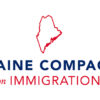Argentinian Hotel Manager Faces Uncertain Future of Visa Renewal
Date: June 25, 2014
Eduardo Soffici, an Argentine immigrant, has built a successful hotel management company in Florida by buying up hotels in established chains, like Howard Johnson and Ramada. His E2 visa status, however, has kept him from expanding more.
Eduardo Soffici, the founder of a successful hotel-management business, knows a thing or two about life not always going according to plan. Soffici, an Argentine native, originally came to the US in 1994, planning to help his employer, a Latin American cable company, expand its presence in Florida. Within three years, however, the small, family-owned cable company he worked for was bought by another firm, and Soffici was looking for new employment. Feeling curious about entrepreneurship, Soffici, who’d trained in hotel management back home, decided he wanted to buy a Howard Johnson hotel in Stuart, Florida. But that wasn’t easy: It took him six months just to find a bank willing to finance his purchase and not charge him sky-high prices. He also was well aware he’d be running a hotel—as opposed to working in one—for the first time. “I knew it would be a challenge,” he says, “to build a new company from scratch.”
But it didn’t take him too long to find success. In the first few months, Soffici says he struggled with high-turnover in the 82-room property, as well as employees not always showing up for work. “I had to learn quickly not to hire the first person who walked through the door,” Soffici explains. He also focused on marketing his hotel and the town of Stuart, buying up advertisements on websites like Expedia.com and in popular travel books. Within three years, Soffici was able to expand, buying a second hotel. And by 2001 his firm, Ames Management Inc, owned three properties, including a Best Western in the popular tourist hub of Orlando. Today the firm, which buys and sells hotels, employs 30 people, down from a high of 70 workers before the financial crisis.
Soffici says that achieving his dream of entrepreneurship likely would not have been possible back home. “It’s so much easier to do business here in the United States,” he says, explaining the US is an easier place to get financing and boasts a more predictable legislative landscape. But Soffici says that he has been hampered by the visa he’s held since 1998–the temporary E2 visa for investors, an avenue sometimes used by America’s immigrant entrepreneurs. Because the visa doesn’t put him on the path to getting a green card, Soffici and his wife must travel back to Argentina every five years to renew their visa, often at considerable travel and legal expense. “It’s frustrating when you’re investing so much and giving work to so many employees–so many US citizens–that you’re not able to get permanent residence,” Soffici says. And that affects his business. “It puts me on hold in a way because there is so much uncertainty,” Soffici says, “If the government ever decided not to renew my visa, I could basically lose my company and my life here.”
Soffici has a son born in the United States. Right now, he views his best visa option as possibly having his son sponsor him for a family-reunification green card when he is older. He worries, however, about his daughter, who came to the US when she was just one and a half years old. “All of us feel American, so it’s frustrating not being … connected to the country in a more official way,” Soffici says. If his daughter doesn’t switch to another visa, she could have to leave the country when she turns 21 years of age.


